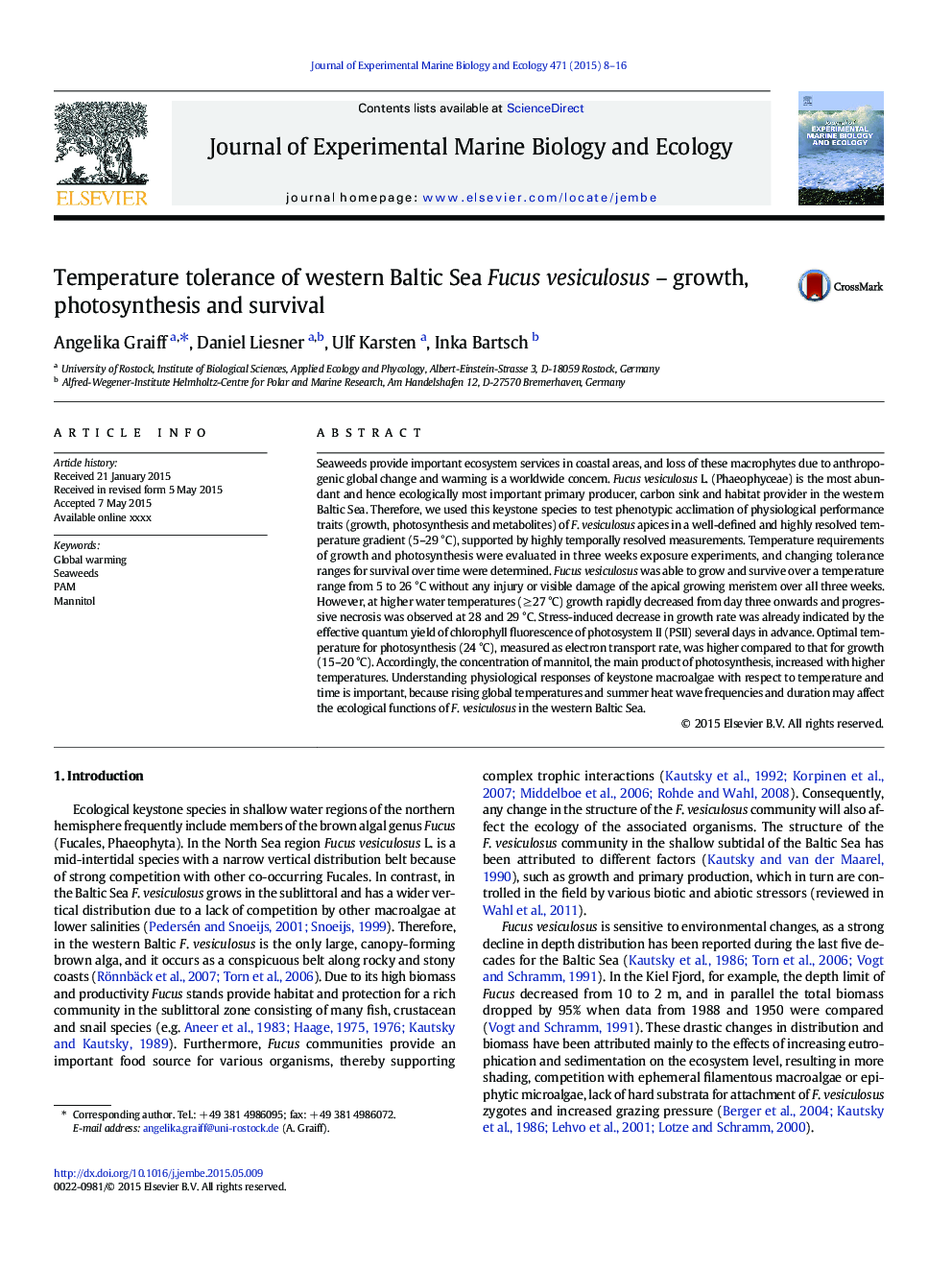| کد مقاله | کد نشریه | سال انتشار | مقاله انگلیسی | نسخه تمام متن |
|---|---|---|---|---|
| 6303844 | 1618404 | 2015 | 9 صفحه PDF | دانلود رایگان |
عنوان انگلیسی مقاله ISI
Temperature tolerance of western Baltic Sea Fucus vesiculosus - growth, photosynthesis and survival
دانلود مقاله + سفارش ترجمه
دانلود مقاله ISI انگلیسی
رایگان برای ایرانیان
موضوعات مرتبط
علوم زیستی و بیوفناوری
علوم کشاورزی و بیولوژیک
علوم آبزیان
پیش نمایش صفحه اول مقاله

چکیده انگلیسی
Seaweeds provide important ecosystem services in coastal areas, and loss of these macrophytes due to anthropogenic global change and warming is a worldwide concern. Fucus vesiculosus L. (Phaeophyceae) is the most abundant and hence ecologically most important primary producer, carbon sink and habitat provider in the western Baltic Sea. Therefore, we used this keystone species to test phenotypic acclimation of physiological performance traits (growth, photosynthesis and metabolites) of F. vesiculosus apices in a well-defined and highly resolved temperature gradient (5-29 °C), supported by highly temporally resolved measurements. Temperature requirements of growth and photosynthesis were evaluated in three weeks exposure experiments, and changing tolerance ranges for survival over time were determined. Fucus vesiculosus was able to grow and survive over a temperature range from 5 to 26 °C without any injury or visible damage of the apical growing meristem over all three weeks. However, at higher water temperatures (â¥Â 27 °C) growth rapidly decreased from day three onwards and progressive necrosis was observed at 28 and 29 °C. Stress-induced decrease in growth rate was already indicated by the effective quantum yield of chlorophyll fluorescence of photosystem II (PSII) several days in advance. Optimal temperature for photosynthesis (24 °C), measured as electron transport rate, was higher compared to that for growth (15-20 °C). Accordingly, the concentration of mannitol, the main product of photosynthesis, increased with higher temperatures. Understanding physiological responses of keystone macroalgae with respect to temperature and time is important, because rising global temperatures and summer heat wave frequencies and duration may affect the ecological functions of F. vesiculosus in the western Baltic Sea.
ناشر
Database: Elsevier - ScienceDirect (ساینس دایرکت)
Journal: Journal of Experimental Marine Biology and Ecology - Volume 471, October 2015, Pages 8-16
Journal: Journal of Experimental Marine Biology and Ecology - Volume 471, October 2015, Pages 8-16
نویسندگان
Angelika Graiff, Daniel Liesner, Ulf Karsten, Inka Bartsch,